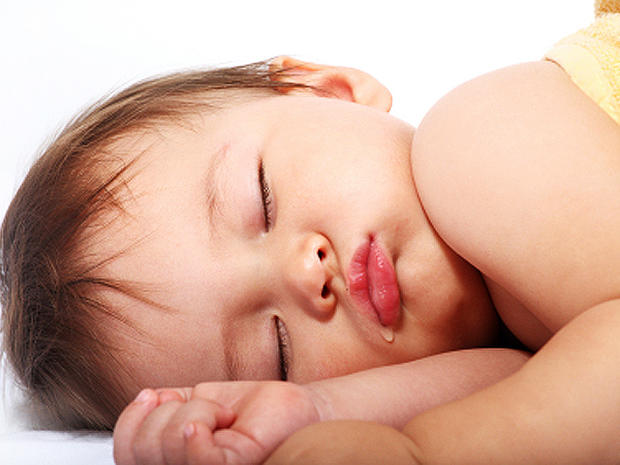Sleep breathing and sleep behavioral issues in kids can lead to other problems
(CBS News) New studies are showing that sleep breathing problems like snoring or sleep behavioral problems like sleepwalking may cause other problematic issues in children.
"The take home from this is we need to be looking at these breathing and behavioral sleep problems at very young ages in these children," Karen Bonuck, a professor in the department of Family and Social Medicine at Albert Einstein School of Medicine in New York, told HealthPop.
The National Sleep Foundation said that most children snore on occasion, but about 10 percent snore every night. Snoring is usually indicative of a sleep breathing problem. However, researchers have begun to notice the effect of sleep behavior problems - which include bedtime fears, difficulty falling asleep or sleepwalking - as well. Bonuck estimates between 10 to 30 percent of children may be affected.
Bonuck lead a new study, published in Pediatrics on Sept. 3, which showed that children with sleep-disordered breathing (SDB) or behavioral sleep problems (BSP) through the age of 5 were more likely to be in special education classes by the time they reached 8 years old.
The study looked at 11,049 children with SDBs and 11,467 children with BSPs born between 1990 and 1991 and recorded data when they were 6, 18, 30, 42 and 57 months of age.
Specifically, after adjusting for outside factors including IQ and other influencing forces, children with a SDB or BSP were 30 percent more likely to have a special education need. Those with behavioral sleep problems were an additional 7 percent more likely to have a special education need each year that a disorder was observed.
"What we found was that absolutely both behavioral and respiratory problems did increase the likelihood of special education," she stated.
A previous study published in the Aug. 13 issue of Pediatrics also linked sleep breathing problems with other issues. The study showed that children who snored twice a week at 2 and 3 had more behavioral problems than children who snored at 2 or 3, but not during both ages. About 35 percent of kids who snored during the ages of 2 and 3 were "at risk" of behavioral problems or worse conditions, compared to only 10 percent of kids who didn't snore at those ages or 12 percent of kids who snored at 2 or 3. Behavioral issues included hyperactivity, depression and inattention.
In the September 2012 issue of Pediatrics, the American Academy of Pediatrics (AAP) warned that sleep disturbances, including sleep apnea syndrome (OSAS), are common in children and can lead to significant health problems. They recommended that all children or adolescents who snore regularly be screened for OSAS, saying that treatments like adenotonsillectomies can significantly improve these conditions. Overweight or obese children are especially prone to sleep problems, and the AAP suggested that pediatricians advocate for a weight loss program in addition to any other sleep breathing treatments.
"There's interest, but I'm not sure that people are paying attention," Bonuck admitted. "I'm hoping that my study, the one earlier and the AAP guidelines really permeate....These are things people should really look for."
